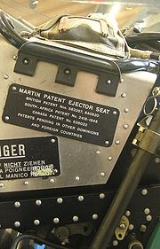
. It consists of a set of exclusive right
s granted by a sovereign state
to an inventor or their assignee for a limited period of time in exchange for the public disclosure of an invention
.
The procedure for granting patents, the requirements placed on the patentee, and the extent of the exclusive rights vary widely between countries according to national laws and international agreements. Typically, however, a patent application must include one or more claim
s defining the invention which must meet the relevant patentability
requirements such as novelty
and non-obviousness
.
1790 First U.S. patent is issued to inventor Samuel Hopkins for a potash process.
1794 Eli Whitney is granted a patent for the cotton gin.
1809 Mary Kies becomes the first woman awarded a U.S. patent, for a technique of weaving straw with silk and thread.
1824 Joseph Aspdin patents Portland cement.
1836 Samuel Colt is granted an United States patent for the Colt revolver.
1839 William Otis receives a patent for the steam shovel.
1844 Charles Goodyear receives a patent for vulcanization, a process to strengthen rubber.
1845 The rubber band is patented.
1873 Levi Strauss and Jacob Davis receive a U.S. patent for blue jeans with copper rivets.
1876 Alexander Graham Bell applies for a patent for the telephone, as does Elisha Gray.
In the field of industrial patents in particular we shall have seriously to examine whether the award of a monopoly privilege is really the most appropriate and effective form of reward for the kind of risk bearing which investment in scientific research involves.![]()
Patents are the best and most effective means of controlling competition. They occasionally give absolute command of the market, enabling their owner to name the price without regard to the cost of production... Patents are the only legal form of absolute monopoly.![]()
The advancement of the arts, from year to year, taxes our credulity and seems to presage the arrival of that period when human improvement must end.![]()
If people had understood how patents would be granted when most of today's ideas were invented, and had taken out patents, the industry would be at a complete standstill today.![]()
The good patent gives the world something it did not truly have before, whereas the bad patent has the effect of trying to take away from the world something which it effectively already had.![]()
There is no patent. Could you patent the sun?![]()

